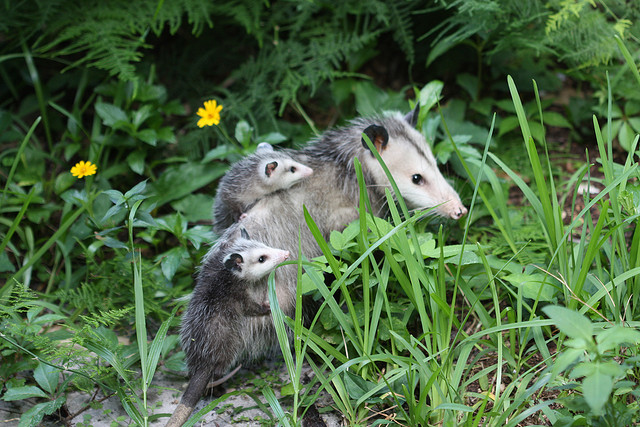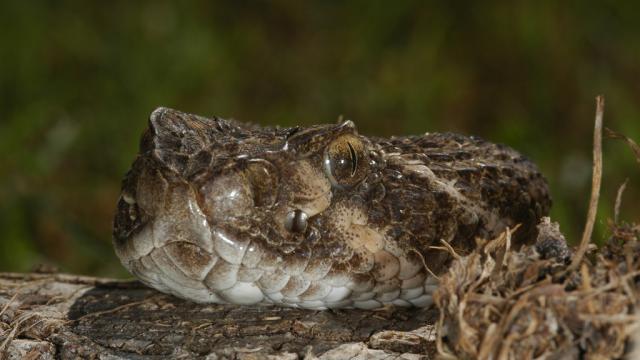While many of us hold the opossum in about as much esteem as a sewer rat, turns out, we ought to be showing this particular urban trashivore a lil’ more respect. Opossums may end up saving thousands of humans from deadly snakebites each year.
That’s because scientists have just managed to synthetically manufacture a possum protein that’s able to neutralize bites from the U.S. Western Diamondback rattlesnake and Russell’s Viper from Pakistan. The researchers behind the breakthrough, who are presenting their work today at the annual meeting of the American Chemical Society, are hopeful that the antivenom will prove effective against a wide range of deadly serpents.
Worldwide, an estimated 421,000 people are bitten by a venomous snake each year. Roughly 20,000 of those bites are lethal, with the majority of deaths occurring in rural parts of India, Southeast Asia, Africa and South America, where access to treatment is limited. But possums, which eat snakes for lunch, shrug off the effects of these deadly venoms with ease. In the early 1990’s, a group of researchers identified the specific serum protein in opossums that was able to neutralize bites. But until now, no one had followed up on that discovery and attempted to develop an antivenom therapy for humans.

Opossums are cute, but also surprisingly tough. Image: Monica R./Flickr
By inserting the gene that encodes the possum’s antivenom protein into the bacterium E. coli, a research team led by Claire Kornives at San Jose State University was able to re-synthesize the protein in the lab. In a press release, Kornives explains that her approach differs from how antivenoms are usually produced:
“Our approach is different because most antivenoms are made by injecting the venom into a horse and then processing the serum,” says Komives. “The serum has additional components, however, so the patient often has some kind of adverse reaction, such as a rash, itching, wheezing, rapid heart rate, fever or body aches. The peptide we are using does not have those negative effects on mice.”
The next step for the researchers will be see how their antivenom holds up against a range of toxins. They’re optimistic that the serum will prove effective against many venomous snakes, and if we’re lucky, it may even work against scorpions, as well as some plant and bacterial toxins.
Soon, it seems, we may all be able to carry a life-saving shot of possum serum with us wherever we go. [American Chemical Society]
Top image: Western Diamondback rattlesnake. Clinton & Charles Robinson / Flickr
